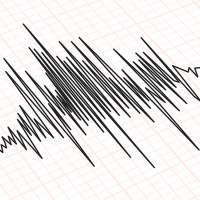- Sunday, 7 December 2025
Why Do We Believe?
It’s surprisingly difficult to find a consistent and coherent definition of “belief.” Merriam-Webster’s dictionary defines it as “something that is accepted, considered to be true, or held as an opinion” and a “conviction of the truth of some statement or the reality of some being or phenomenon especially when based on examination of evidence.” But is a belief really the same as an opinion? They certainly aren’t always expressed as mere opinions; all too often we hold them with certainty. And how often are beliefs really based on evidence? That depends on what we mean by “evidence.”
Indeed, “evidence” can have a variety of meanings. In my forthcoming book False: How Mistrust, Disinformation, and Motivated Reasoning Make Us Believe Things That Aren’t True, I argue that there are at least four kinds of evidence that we use to justify our beliefs, each with their own fallibilities:
Intuition. Much of what we believe is based on an instinct, a hunch, or “gut feeling” about something. Comedian Stephen Colbert coined the term “truthiness” to describe this kind of evidence; in 2006, Merriam-Webster declared it the Word of the Year, defining it as “truth coming from the gut, not books; the quality of preferring concepts or facts one wishes to be true, rather than concepts of facts known to be true.” Needless to say, although we often rely on intuition to guide our judgments of others, like potential spouses, business partners, or politicians, and of our investments, this is often not a very reliable way to ascertain the truth or to make the best possible decision. High divorce rates and bad investment results are testament to that.
Faith. The Bible calls faith “the substance of things hoped for, the evidence of things not seen.” In other words, faith involves belief in the absence of evidence. Though related, it's a more active process than intuition or instinct, but like intuition, it can just as easily lead us astray. In fact, the “paradox of faith” is that we tend to feel most passionately about our beliefs when they’re least supported by evidence.
Personal experience. Consistent with the dictum “seeing is believing,” there’s no question that our own personal experience often determines what we believe. Author and theologian C.S. Lewis has been quoted as saying that experience is the “most brutal of teachers. But you learn, my God, do you learn.” And yet, while experience can be a harsh teacher, our own personal experience is fallible: Just because we think we’ve seen a ghost doesn’t mean that we actually saw a ghost, just as our experience of the horizon as flat doesn't mean that the Earth really is flat. Despite how much we often value it, “personal truth” based on subjective experience isn’t the same as objective truth.
Trust. There are plenty of things for which we lack both intuition and experience, like how to fix a home appliance or how hot it is in Calcutta right now. For such subjects, we must rely on the experience, knowledge, and testimony of other people, especially those we judge to be experts on a given subject. Since our trust judgments are often based on intuition, sometimes this turns out well and sometimes it doesn’t. These days, with so many people denouncing experts as unreliable while declaring themselves as experts, we often run the risk of putting our trust in the wrong sources. Today’s informational landscape, with reliable information and unreliable misinformation existing side by side, often results in a “tale of two alternate realities” in which our trusted sources of information put us at odds with those who put their trust in different, and polar opposite, sources.
The scientific method was developed to ascertain objective truths by collecting objective evidence through repeated observation and controlled experiments that allow us to avoid succumbing to the pitfalls of intuition, faith, subjective experience, and misplaced trust. But we aren’t born to gather empirical evidence that way. It’s a method that must be learned, practiced, and often repeated ad infinitum with revised conclusions—that is, modifying our beliefs based on new data. And even the best scientists don't use the scientific method to determine all of their beliefs, like who they should marry or whether or not there's a God.
Since we rely on intuition, faith, personal experience, and trust for much of what we believe, it's easy to see why so much of what we believe might be wrong.
- Psychology Today









-original-thumb.jpg)







